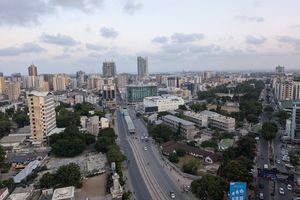Irresponsible generation, a new headache for universities

What you need to know:
- Universities are facing a new challenge in dealing with the weight of admitting students who lack accountability and act without fully assessing the repercussions of their actions
Dar es Salaam. Universities are grappling with the burden of admitting irresponsible students who lack accountability and do things without properly considering their consequences, it has been stated.
According to experts, this prepares the setting for production of an irresponsible, careless and ignorant labour force even when some of them graduate with excellent GPAs.
Employers’ labour needs and demands have changed. Many are mainly looking for ‘soft skills.’ These relate to personal attributes, behaviours and attitude, something that many graduates lack.
The issue came up during the first phase of the 53rd graduation (first phase) of the University of Dar es Salaam (UDSM) last week, when speaker after speaker raised concerns about the challenging situation caused by the increasing trend of reckless students..
They said students forego classes and ignore practical lessons with their only focus being entering the list of graduands at the end of their stay at the university regardless of the examination results. However, some of them end up failing to finish their education on time.
The Chairperson of the UDSM Council, Ambassador Mwanaidi Sinare Maajar said the Council was aware of, and understands how students’ behaviours affect the learning environment and teaching morale at
Dr Amos Ruitayamu from UDSM lamented the fact that students’ poor attitudes go against the needs of the nation to have a future generation of change-makers who can provide solutions to a myriad challenges facing the society.
“Graduating is one thing, but the type of labour force that is being introduced to the market raises concerns. Students must be well guided from childhood,” he noted.
He added that there are students that lecturers only meet on examination day.
“They don’t bother and just want an easy ride. They see themselves as grown-ups who can do anything. This is a dangerous mind set especially in this period when the world has changed a lot,” he cautioned.
In the graduation, a total of 595 graduates, including 50 PhD graduates, were awarded certificates.
Among them, 47 percent were women, which was reported to be a positive achievement for the university as it seeks to bolster the number of women academics.
“Education cannot be profitable if it is not used to solve society’s problems, every graduate has something to do to change the life of the society around him,” said UDSM’s Vice Chancellor, Prof William Anangisye.
Despite the challenge, Prof Anangisye said he believes the graduates (especially the 53rd cohort) were adequately prepared to serve the people with knowledge and skills that can bring about change in the country, in the continent and the world in general.
But other academicians, weighing in on the matter said the reported behaviours of UDSM students raises issues about the role of education, which should be rehabilitating unwanted student behaviours as well as to helping them change their attitudes negative to positive ones.
A lecturer from the University of Dodoma, Dr Lameck Mkumba says that despite the fact that universities have historically been considered as ‘free zones’, they have the duty of preparing future leaders and managers who are expected to provide significant contribution to the development of the country’s economy.
“Difficult behaviours, irresponsible and poor attitudes of students is not only UDSM’s problem. It is a result of a lack of proper guidance for children, many of whom are still very young when they join universities,” he noted.
“If we have 1000 students of this type in each of the more than 70 universities in the country, it will be a national disaster because most of them may end up joining criminal gangs,” he explained.
What ought to be done?
Ambassador Maajar called upon parents and guardians to seriously take up the responsibility of the upbringing of their children.
“UDSM Council continues to urge parents and guardians to manage the best behaviour of their children, especially in this period of globalization, otherwise we will be creating a dependent generation…,” she said.
She added, “I also appeal to various community organisations and institutions, including religious ones, to return to the best foundations of behavioural teachings by looking at this issue with a unique eye in order to save future generation.”
The Director General of the Tanzania Institute of Education (TIE), Dr Aneth Komba also commented on the issue, saying that parents should be responsible for their children, and continuing guiding them even after they finish high school.
But they should not end up there. They should also pay attention to their children’s moral development when they join the university and stop deceiving themselves that their children are already adults.
“Parents, our work of guiding our children does not end up when they graduate from high school.
Even after they enrol in universities, we should continue keeping an eye on them to make sure they’re on track to fulfil their ambitions,” said Dr Komba.
“This is a national agenda and should be treated as such by everyone,” noted Dr Mkumba.
He said that globalisation, ignorance of parents/caregivers and carelessness among young people needed to be solved in order to save the millennial.
“Universities will continue with their responsibilities, but education at the lower levels starting from home, primary and secondary schools must focus on preparing students to manoeuvre the freedom that exists in universities,” he said.
For his part, Dr Ruitayamu advises the government to give guidance to universities as it has given to the lower levels and to parents so that there is a mechanism to help university students become better employee and entrepreneurs after graduation.
“As lecturers, we try to deal with this type of students, but at last they end up getting lost because of the kind of upbringing they got when they were little,” he noted.




